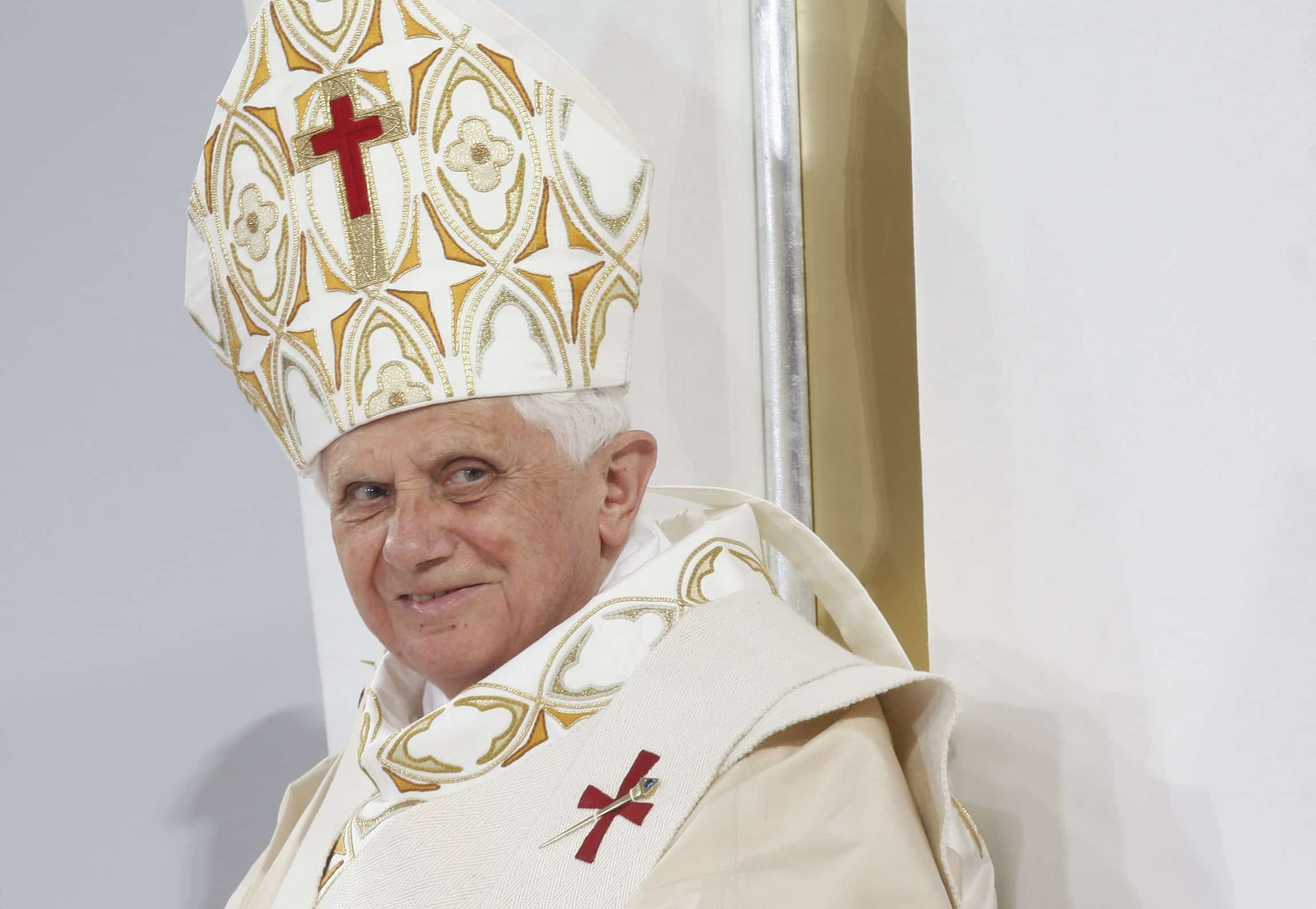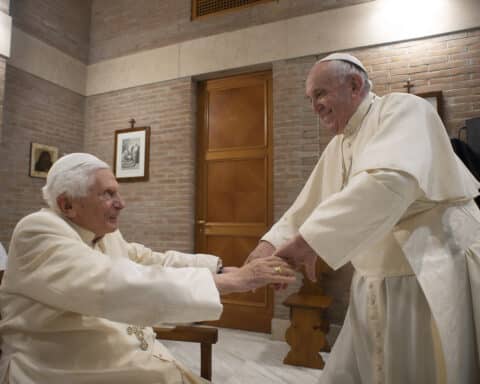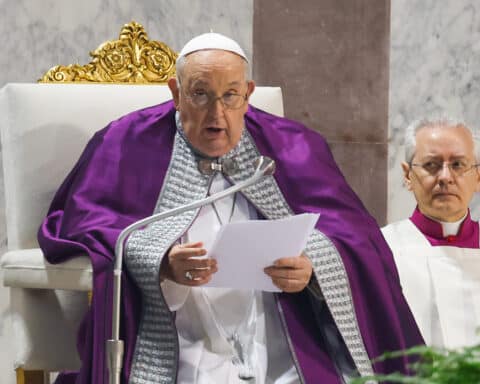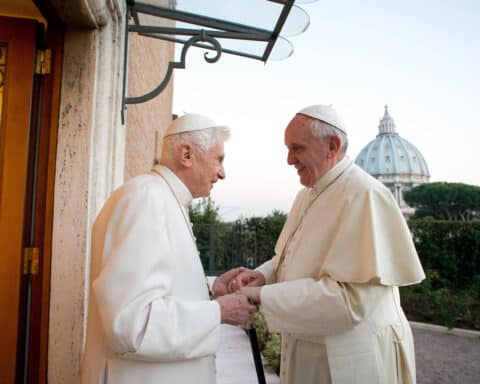Nicknamed the “professor pope,” Benedict XVI lived a life devoted to placing the truth in the service of love. A keen defender and teacher of the Church’s doctrines, he had a deep confidence that the truths handed down by Jesus Christ would never detract from our ability to carry out his commandment to love. Rather, they would help us fulfill it.
As a young priest, as cardinal, as Prefect of the Congregation for the Doctrine of the Faith, as pope and, finally, as pope emeritus, Benedict spoke words that encouraged and inspired — but also words that corrected and clarified. Below is a collection of quotes from the late Holy Father that show his inimitable way of speaking — and living — the truth in love.
On theology
“Every theologian now seems to want to be ‘creative’. But his proper task is to deepen the common deposit of faith as well as to help in proclaiming it, not ‘to create’ it. Otherwise faith will be fragmentized into a series of often conflicting schools and currents to the grave harm of the disconcerted people of God.”
— “The Ratzinger Report,” 1985
On the liturgy
“Are we not interested in the Cosmos anymore? Are we today really hopelessly huddled in our own little circle? Is it not important, precisely today, to pray with the whole of creation? Is it not important, precisely today, to find room for the dimension of the future, for hope in the Lord who is to come again, to recognize again, indeed to live, the dynamism of the new creation as an essential form of the liturgy?”
— “The Spirit of the Liturgy,” 2000
On faith
“Faith is not a mere intellectual assent of the human person to specific truths about God; it is an act with which I entrust myself freely to a God who is Father and who loves me; it is adherence to a ‘You’ who gives me hope and trust.”
— General audience, Oct. 24, 2012
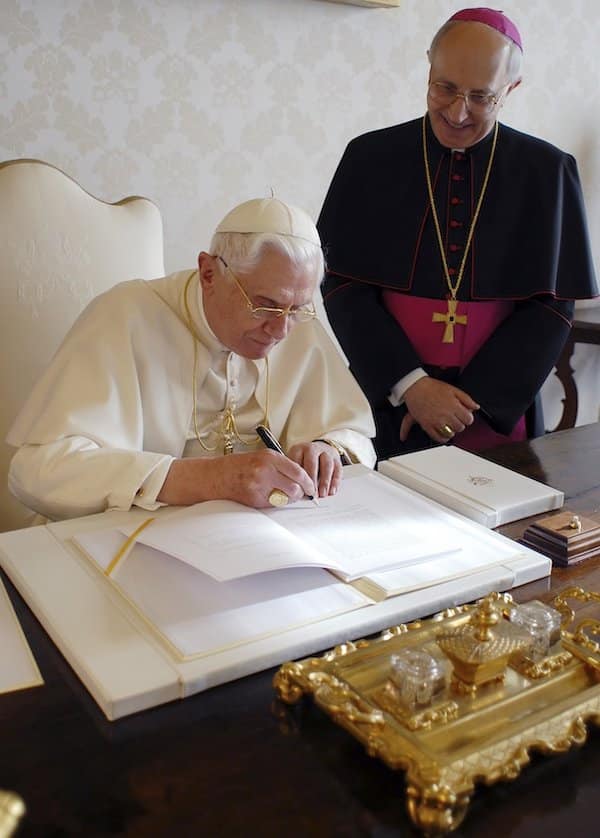
On hope
“Man was created for greatness — for God himself; he was created to be filled by God. But his heart is too small for the greatness to which it is destined. It must be stretched.”
— Encyclical letter Spe salvi, Nov. 30, 2007
On love
“Do not desire anything less for your life than a love that is strong and beautiful and that is capable of making the whole of your existence a joyful undertaking of giving yourselves as a gift to God and your brothers and sisters, in imitation of the One who vanquished hatred and death forever through love (Rv. 5:13).”
— Message to the youth of the world on the occasion of the 22nd World Youth Day, 2007
“Love — caritas — will always prove necessary, even in the most just society. There is no ordering of the State so just that it can eliminate the need for a service of love. Whoever wants to eliminate love is preparing to eliminate man as such.”
— Encyclical letter Deus caritas est, Dec. 25, 2005
On truth
“The truth comes to rule, not through violence, but rather through its own power; this is the central theme of John’s Gospel: When brought before Pilate, Jesus professes that he himself is The Truth and the witness to the truth. He does not defend the truth with legions but rather makes it visible through his Passion and thereby also implements it.”
— “Light of the World: The Pope, the Church, and the Signs of the Times — A Conversation with Peter Seewald,” 2010
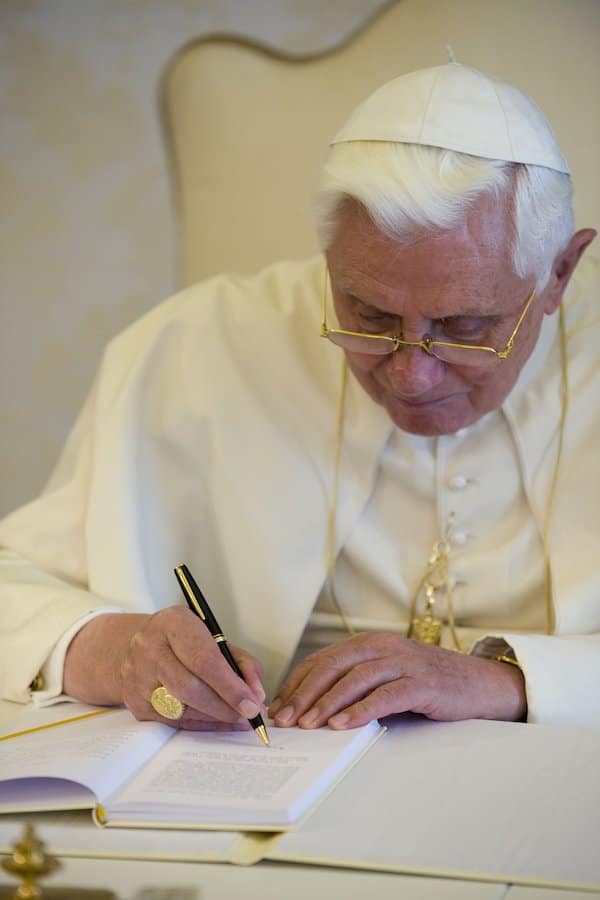
“A Christianity of charity without truth would be more or less interchangeable with a pool of good sentiments, helpful for social cohesion, but of little relevance. In other words, there would no longer be any real place for God in the world.”
— Encyclical letter Caritas in Veritate, July 7, 2009
On freedom
“The freedom of a human being is the freedom of a limited being, and therefore is itself limited. We can possess it only as a shared freedom, in the communion of freedom: only if we live in the right way, with one another and for one another, can freedom develop.”
— Homily for the Solemnity of the Immaculate Conception of the Blessed Virgin Mary, Dec. 8 2005
“As Son, Jesus brings a new freedom: not the freedom of someone with no obligations, but the freedom of someone totally united with the Father’s will, someone who helps mankind to attain the freedom of inner oneness with God.”
— “Jesus of Nazareth: The Infancy Narratives,” 2012
On the Second Vatican Council
“[T]here was the Council of the Fathers — the real Council — but there was also the Council of the media. … We know that this Council of the media was accessible to everyone. Therefore, this was the dominant one, the more effective one, and it created so many disasters, so many problems, so much suffering: seminaries closed, convents closed, banal liturgy … and the real Council had difficulty establishing itself and taking shape; the virtual Council was stronger than the real Council. But the real force of the Council was present and, slowly but surely, established itself more and more and became the true force which is also the true reform, the true renewal of the Church.”
— Address to the clergy of Rome, Feb. 14, 2013
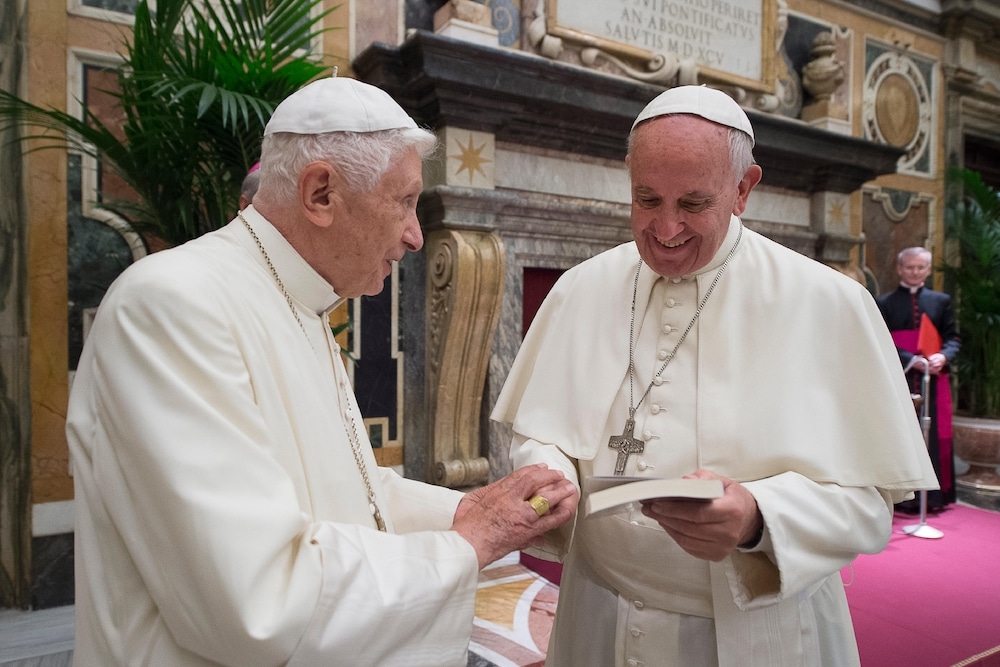
On the Eucharist
“[The Greek word] Eucharistomen harks back to the reality of thanksgiving, to the new dimension that Christ imparts to it. The cross, suffering, all that is wrong with the world: he transformed all this into ‘thanks’ and therefore into a ‘blessing.’ Hence he fundamentally transubstantiated life and the world, and he has given us and gives us each day the bread of true life, which transcends this world thanks to the strength of His love.”
— Address on the 65th anniversary of his priestly ordination, June 28, 2016

